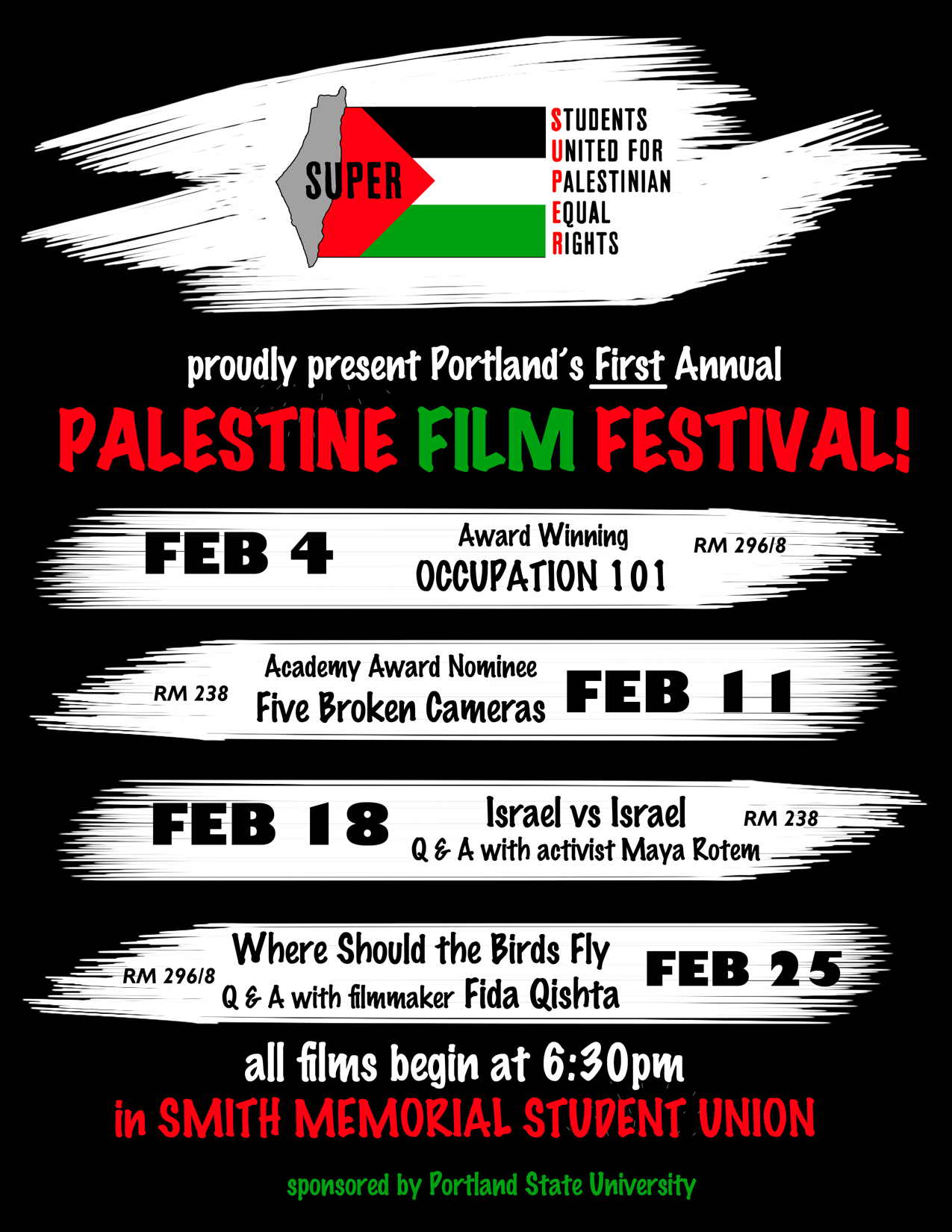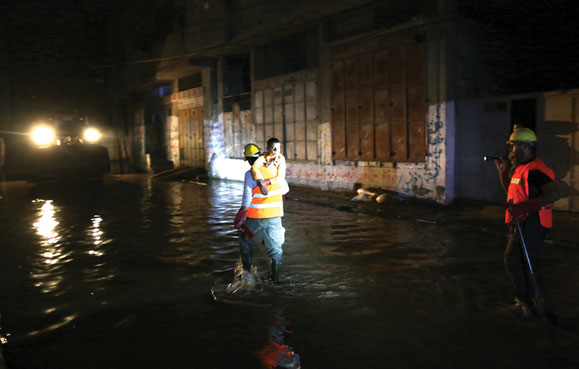Portland Palestine Film Festival, February 2014
- Details
- Written by Students United for Palestinian Equal Rights Students United for Palestinian Equal Rights
- Published: 29 January 2014 29 January 2014


pogrom: Mob attack, condoned by authorities, against persons and property of a religious, racial, or national minority. (Merriam Webster Concise Encyclopedia)
[Photo: An image grab showing a settler throwing stones next to an israeli soldier.(B'Tselem)]
BETHLEHEM (Ma'an) -- Israeli human rights group B'Tselem on Wednesday released video footage which shows Israeli soldiers standing among settlers while they attack a Palestinian school with stones in the Nablus village of Urif.
The incident took place on Monday when a group of settlers raided the village and started throwing stones at the Safadi family home, adjacent to the site of a USAID funded water reservoir project.
The settlers then threw stones at a village school.
The video footage, which was filmed by local resident Usama Safadi, clearly shows settlers throwing rocks in the presence of Israeli soldiers.
"The soldiers took no measures to arrest the settlers, to remove them from the area, or at the very least to put an end to the stone-throwing. Several students at the school threw stones back at the settlers and the soldiers fired teargas at the students," B'Tselem said.
The settlers appeared to also be accompanied by a security guard from a settlement.
Read more: In video: Israeli military accompanies settler attack
The ever creeping dispossession of Palestinians in the guise of comedy by the BBC Three.
Watch:
http://www.youtube.com/watch?feature=player_embedded&v=e6KqarWbN7A
We decided to make this urgent report from Mohammed Omer into an action alert—Gazans need our help now!
Contact Secretary of State John Kerry:
Write: U.S. Department of State
2201 C ST., NW
Washington, DC 20520
Call: 202-647-4000; select option 4 and ask operator for the comment line.
202-647-6575 (Public Communication Division); select option 8 to leave your comment. It is cold, there is no power, and I am charging my computer using a car battery in order to get this message out. It is so cold in Gaza that everyone has cold feet and a cold nose. A new storm is hitting this besieged enclave. There is no electricity, and shortages of water, fuel, and vital services mean people just sit and wait for the unknown.
It is cold, there is no power, and I am charging my computer using a car battery in order to get this message out. It is so cold in Gaza that everyone has cold feet and a cold nose. A new storm is hitting this besieged enclave. There is no electricity, and shortages of water, fuel, and vital services mean people just sit and wait for the unknown.
Tens of houses east of Gaza City, in the northern Gaza Strip, in Khan Younes and Rafah are flooded with rain today. The sewage system cannot function and Gaza municipalities announced a state of emergency. Schools and most shops are shut, there is no traffic and few people are walking in the street.
Gaza City’s garbage trucks have been at a standstill due to the ongoing fuel shortage. I’d gotten used to the bright orange truck that usually passes by, sounding its horn, a sign for all my neighbors to bring out their garbage for collection.
Now the donkey is our only remaining hope. Since last week—when fuel supplies ran dry—the only sound one hears now is the click-click of their hooves as they pull their carts along the road at 4 a.m. By noon, they have collected all they can on their busy route. In Gaza’s Barcelona neighborhood, garbage containers are overflowing—a normal occurrence since fuel ran out.
Nelson Mandela was a true hero. He stood for truth, justice, reconciliation and peace. He led his people to freedom and he set a stellar example to other people around the world as they engage in their own struggles for peace and justice. The world’s outpouring of respect as we honor his passing is natural. Nevertheless, I feel some unease at some of this reaction. Many who now praise him are guilty of, if not outright hypocrisy, then at least a remarkably forgetful and self serving kind of conversion.
Read more: On Honoring Nelson Mandela (and remembering Palestine)